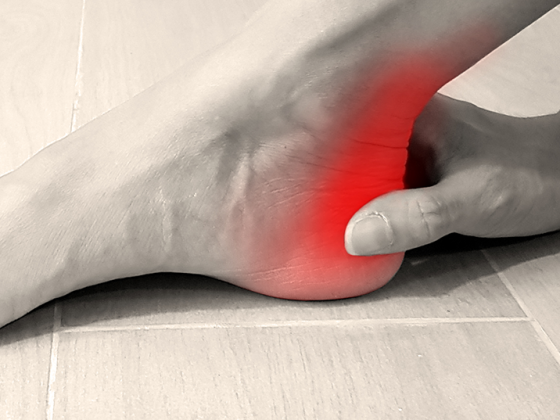Elderly patients >75 years of age with existing atherosclerotic cardiovascular disease should be subjected to effective lipid lowering after considering their health status and with the help of regular follow-up. According to study results, cardiovascular events can be reduced just as effectively as in younger people.
(red) Hypercholesterolemia/dyslipidemia, along with hypertension, is one of the most important cardiovascular risk factors that can be influenced. Cardiovascular disease is the second leading cause of death in Switzerland after cancer, and people over 65 have an increased cardiovascular risk according to the European Society of Cardiology (ESC) [1,2]. For secondary prevention in those over 65 years of age with atherosclerotic cardiovascular disease (ASCVD), lipid lowering with statins is recommended analogous to younger patients [3]. However, there is also excellent evidence that people over 75 years of age benefit significantly from LDL reduction as part of secondary prevention, reported Prof. Jürg Hans Beer, MD, Baden [2]. Since the reduction of LDL concentration per se is important and not the class effect of the drugs, it is irrelevant whether statins or non-statins are used.
The current ESC guidelines recommend lipid-lowering treatment in older patients with existing atherosclerotic cardiovascular disease (ASCVD) analogous to younger patients [3]. However, primary prevention with statins should be performed only up to the age of 75 years. There is a potential risk for statin interactions in the context of age-correlated changes in pharmacodynamics as well as clustered comorbidities and polypharmacy. In elderly patients with renal impairment and/or potential interactions, it is advised to start with a low statin dose and then titrate up to achieve LDL-C treatment goals. If the therapeutic goal is not achieved within 4-6 weeks, a combination with ezetimibe should be considered. After that, the addition of a PCSK9 inhibitor may be recommended-always after risk evaluation, Beer said.
Focus on secondary prevention
In a secondary analysis of 244 090 patient records from 29 clinical trials, it was observed that 8.8% of participants were ≥75 years of age [4]. Of the 21 492 patients, 54.7% were treated with a statin, 28.9% with ezetimibe, and 16.4% with a PCSK9 inhibitor. The follow-up period ranged from 2.2 to 6.0 years. Lipid-lowering therapy was shown to reduce the risk of a serious cardiovascular event to a similar extent as in younger patients. In the meta-analysis, lowering LDL cholesterol reduced the risk of serious cardiovascular events by a mean of 26% (RR 0.74; 95% CI 0.61-0.89; p=0.0019). The difference for risk reduction in patients <75 years proved not to be significant (RR 0.85; 95% CI 0.78-0.92; p=0.37). The data from the elderly patients also indicate that the relative risk is not significantly different depending on lipid lowering with statins (RR 0.82; 95% CI 0.73-0.91) vs. non-statins (RR 0.67; 95% CI 0.47-0.95; p=0.64). Older patients therefore benefit just as much from lipid lowering as younger patients, the lecturer was pleased to say.
Statin or non-statin
Whether a statin should be used depends on the individual benefit-risk analysis. This is because the intensity of LDL lowering varies depending on the statin, dosage, and genetic predisposition. The fears that statin administration leads to an increased risk of cataract and bleeding have been refuted. Also, no significant deterioration of renal function or increased risk of dementia was demonstrated. However, a closer look should be risked in elderly patients with obesity and insulin resistance regarding elevated glucose levels. Hyperglycemia can occur as a dose-dependent side effect of statin therapy. Beer concluded that in elderly patients, an individual benefit-risk analysis should be performed in any case and, if necessary, a change of the drug or a dose adjustment should be considered.
Congress: SGAIM Spring Congress
Literature:
- Rosemann A, et al: Hyperlipidemia. medix Guideline, last revised: 07/2020, Available at: www.medix.ch (last accessed 06/21/2021).
- Riesen WF, et al: New ESC/EAS dyslipidemia guidelines: an annotated review by the AGLA. Swiss Medical Forum, online magazine, published 06.01.2020, https://medicalforum.ch (last accessed 21.06.2021).
- European Society of Cardiology: 2019 ESC Guidelines Dyslipidaemia (Management of). ESC Clinical Practice Guidelines. Available at: www.escardio.org/Guidelines (last accessed 21.06.2021)
- Gencer B, et al: Efficacy and safety of lowering LDL cholesterol in older patients: a systematic review and meta-analysis of randomized controlled trials. Lancet. 2020 Nov 9: S0140-6736(20)32332-1.
CARDIOVASC 2021; 20(2): 27 (published 6/26/21, ahead of print).











